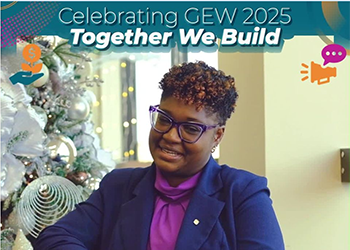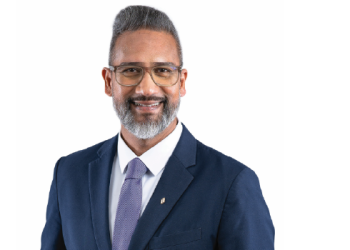Today’s leaders certainly don’t have it easy.
With all that has been going on, there never seems to be much time left to act decisively, much less to think decisively. In my personal and professional journeys, I often find myself in these situations; real-time instances where, because so much hangs in the balance and upon my shoulders, and not a second to be wasted, a decision has to be made.
The best way to face challenges
How many times have we asked ourselves: if only we had a little more time to think things over or to closely examine what is before us, could we make the right call?
It is ironic that during these times, many of us opt out of using introspection as the best way forward. It may be fear. It may even be decision fatigue. However, as counterintuitive as it may sound, looking within ourselves (as leaders and as social human beings) is often the best way of surmounting the challenges that exist around us.
Asking the hard questions
Leadership – it is a tough ask, to be sure. Running a country, a business, even a household takes much out of today’s leaders. Considering the cost of making the wrong call, the kind of call that comes from a lack of understanding of oneself and one’s role in the larger scheme of things, how much are we willing to let slip through the cracks simply because we are either afraid or unwilling to talk to that person in the mirror?
How many leaders have been undone because they were either ignorant of or unprepared to harness the untapped resources that lie within?
With the rapidly changing landscape around us and the ever increasing ask of leaders, as leaders, we need to ask ourselves the hard questions. There has never been a time more deserving than now to identify and realign ourselves to those traits of leadership that have steered us well along our individual and collective journeys.
As we talk a little about it here, I hope we can all come to agree that we owe it to the people we lead, if not ourselves, to take those critical moments for ourselves to rediscover the leaders we are from within. To find and re-strengthen our centres.
Understanding strengths and limitations
Self-awareness is a remarkably rare commodity – not just in leaders but in most people. Not surprisingly, the best leaders have a high amount of self-awareness, since the biggest ask of being self-aware is having an understanding of, and access to one’s own knowledge and performance.
Traits that we undoubtedly develop when, as we face and surmount our personal and professional challenges, we can be honest with ourselves in not just how we think and feel, but also in how we choose to move ahead.
As leaders, this must be the first step in understanding our strengths, limitations and ability (and adaptability) to change. I remember two specific times in my life when I had to make decisions based on me being truly honest with myself; choices that would ultimately influence not only the leader but also the person that I would become.
The first involved my decision to resign from a leadership position at a prominent regional financial institution – a move I made without consulting anyone. The second involved overcoming my initial disappointment at a career development that I felt at the time hindered more than helped me.
In both instances, I had to take a good long look at the situations that I was in, assessing both the pros and the cons, and then make the move that I thought was the best – not just for me in the short term but also the long term.
Both circumstances called for me to be brave since, in the first case, I did not have a job that I was leaving to join, and in the second, I had to be at peace with the fact that, despite my wishes, I would not always get what I wanted or what I worked toward.
Above all, in those two particular times, I had to look at the changes that were happening around and within me and then look deeper within for the answers. I had to find the peace to deal with the noise around me.
Many times, we feel like this. We find ourselves beset by the chaos of change and events that we feel are beyond our control. But what we can always control will be the way we react, the way we reason, and the way I respond.
Coming out of those times in my life, I didn’t realise it then, I was actively deciding to be the kind of person and leader who could better embrace change and maximise any positives outcomes possible for me and for the people I would come to lead. I was learning to listen to and trust myself as a reliable source for answers.
I am proud to say that I have been doing that ever since. This practice has formed a major part of my inner core, the person I talk to in those few and far between quiet moments, and in the many chaotic and noisy ones as well. I am also proud to say that, to this date, it has never steered me wrong.
The Importance of Strong Personal Values
Nowadays, every organization has a mission, a vision, and core values. Typically, while we don’t commit these to heart (although we really should), these pieces of inspirational prose are meant to motivate our teams and influence the kinds of behaviours that would make our organizations profitable and respectable.
But what about our own personal values? I would wager that many of us have not written those down or even committed them to memory. Sure, we all have a basic idea of the behaviours we wish to embody, but how many of us, when called upon, can share these with others even in casual conversation?
In rediscovering the leader from within, let’s start there – with our own, individualized personal values that drive and guide us, that motivate and inspire us, that define us and give our lives even greater purpose.
Important values every leader must have
For ease of this exercise, let’s look beyond the two values that every single human being must have – 1) integrity and 2) treating people with respect.
Personally, I have three key guiding principles:
1) To never be afraid to fail
2) To never dwell in disappointment
3) To never reflect on regret
Simple, right? Well, you may have noticed that they all have the word “never” in common. That is because for me, that word is a reminder of what or who I should not allow myself to become. Yes, it’s a strong word but in many ways, it resonates deeply with me because of those connotations. They represent an extreme because of how extremely I regard failure, disappointment, and regret. These guidelines work for me because of my personal and professional experiences and because I have made them a part of who I am.
Take, for instance, my first two guidelines. I view them as two sides of the same coin because either one could paralyse you. In business and in life, uncertainty is the only certainty and only the very lucky few among us will succeed all the time. The rest of us will be lucky to operate in the 80% to 90% success rate zone.
That still means that you will fail 10% to 20% of the time. So, we must be prepared for that in ourselves and in others or we will be of little use to either. Part of the preparation means that we learn from the failures and not become emboldened by them. It means that instead of harping on inevitable disappointment that we become energised by it and motivated to being and doing better. In the end, we become much stronger persons for doing so. In other words, it’s not enough to know something about yourself, but more importantly to know what to do about that something.
Leadership in The Time of COVID-19
We have explored quite a bit about finding that strength from within. Granted that I shared some of my guidelines, you are free to set yours. Whatever personal guidelines we set; however, we need to be honest in how we define them because, at the end of the day, they are what will define us.
We need to accept them as that part of ourselves as leaders and as human beings that we can listen and adhere to in times of uncertainty and challenge. Like I said at the beginning, it is not an easy time to be a leader. For many, it is an unprecedented time. We face human tragedy. People have lost jobs and businesses, their ways of living, and worst of all, their lives and loved ones. Many have had to put their lives and their dreams on pause with no idea of when life will resume.
We also need to understand that, as worrisome as today is, it will not last forever. Even if it lasts 3 years, that is not forever. We may not know much of anything about the present or the future, but before we can presume to know more about the world and the roles of today’s leaders in making it a better place, in whatever ways we can, we must first know ourselves. In the midst of the pandemic, the chaos, noise, and fear all around us, what answers can we source from within? What inspiration can we find and share as we rally our teams and ourselves to fight the good fight?
Call it a tipping point, a paradigm shift, or even a point of no return, whatever the title, leaders are called once again to act decisively and justly – not just in our respective businesses and industries, but in our lives and societies – because we are all in this together. It is times like these that define true leadership. Even the worst of captains can steer a ship through still waters but we must believe and strive to be better than that because these waters are anything but still.
We are never going to have much time on our sides to be our better selves. Therefore, take the time to find the calm in the storm and talk to that leader within. It is the only way that we can make the right call when the opportunity comes to serve the people counting on us.

















